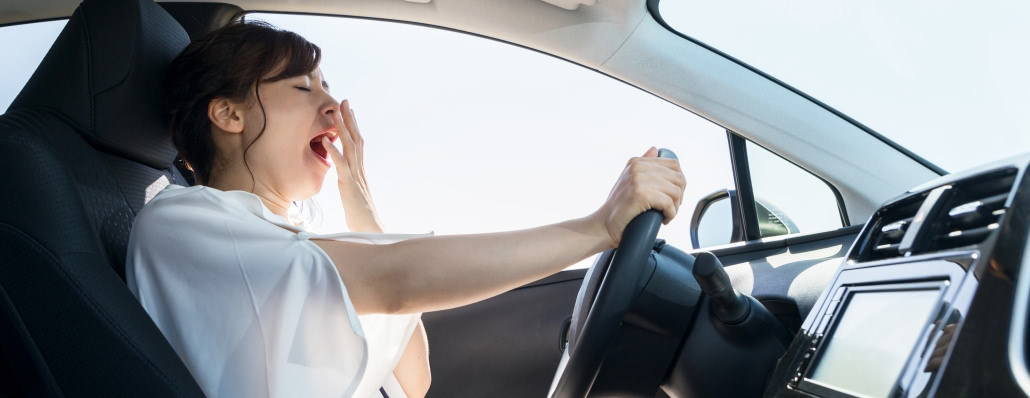by Penny M. Hagerman
Have you ever slipped behind the wheel, cranked up some tunes and taken off on a long road trip without sufficient sleep? If so, you know how easy it is to absentmindedly drive too far or for too long without a break—and suddenly find yourself wondering where the last few miles or minutes went.
We’re all guilty of driving drowsy at one time or another. But did you know that drowsiness??and fatigue cause more than 100,000 automobile crashes every year, kill at least 1,500 and injure a whopping 71,000 people?
That’s right, according to the National Highway Traffic Safety Administration (NHTSA), driving while drowsy has many of the same effects as driving while drunk or drugged: slowed reaction times, impaired judgment, decreased awareness—and increased loss of life.
The Sobering Facts
According to one study conducted by the AAA Foundation, some drowsy drivers simply close their eyes for longer than a blink, despite doing their best to try and stay awake. Others bob their heads and then bolt upright when they feel themselves drifting off, while still others stare fixedly ahead, without responding or even reacting to oncoming traffic.
Well, guess what, drowsy drivers? It’s time to wake up! We can’t continue burning the candle on both ends; driving without enough sleep; putting ourselves, our passengers and everyone on the road at risk; and paying the price in lives lost, injuries suffered and insurance rates escalated.
Consider these sobering facts, courtesy of Edmunds.com:
- Drowsy drivers cause 20 percent of all automobile accidents.
- The majority of crashes due to sleepy driving occur during the day—not at night.
- Less than one percent of all sleep-related crashes involve truck drivers.
- Working the night shift increases the odds of a drowsy driving accident almost six times.
- As commute times lengthen, the number of drowsy driving incidents increase.
- People of all age groups and experience levels drive drowsy; but 18- to 20-year-olds, as a group,??do it most.
The Face of Drowsy Driving

So how can you know when you’re too tired to drive? Does it take an injury or accident to help you realize you’ve gone too far and need to get some shut-eye?
No, experts say. Most people can recognize when they’re driving drowsy. It just takes paying attention and taking action at the first signs, which include:
- Yawning repeatedly
- Wandering or disconnected thoughts
- Difficulty focusing or keeping the eyes open
- Inability to remember driving
- Tailgating or missing traffic signs
- Wandering within the lane or across the road
- Near misses
Taking Action to Protect Yourself and Others
If you find yourself experiencing any of these symptoms of drowsy driving, it’s time to stop!
Contrary to what you may think, playing loud music and blowing cold air in your face aren’t good coping mechanisms. Instead, find a safe place to pull off the road or drive a short distance to a nearby gas station or convenience store.
Take a short nap in your car if you need to; then get out, do some stretches or take a walk. Consider drinking a caffeinated beverage or eating a high-protein snack to help keep you energized and your brain active.
Drink plenty of water to stay hydrated and keep your body processing liquids during the trip.
Finally, if you’re not riding alone, ask a passenger to ride along up front during the remainder of the trip to keep you company and engaged in conversation. Whatever you do, don’t return to driving until you’re alert and awake.
It’s Time to Wake Up!
Wake up, drowsy drivers! Avoid becoming a statistic—and help keep car insurance rates low.
With plenty of rest before that big trip, and a few preventative measures, you can keep everyone on the road safe.

1 thought on “Drowsy Drivers, Wake Up!”